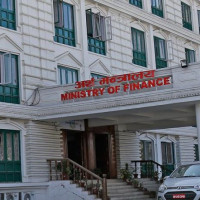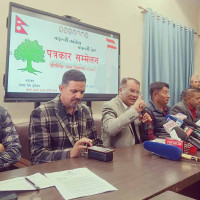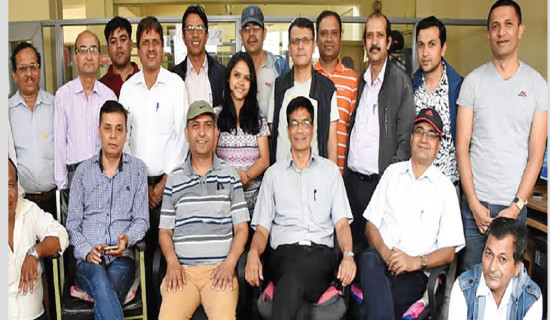- Friday, 30 January 2026
Dengue patients need rest, proper diet to avoid acute syndrome
BY AJITA RIJAL
Kathmandu, Oct 17 : Dengue, a viral infection transmitted to humans through the bite of infected Aedes mosquitoes, is becoming increasingly dreadful with rise in fatality and post-acute dengue syndrome.
The recovery period after infection is quite long. Talk to those infected with the disease and they will tell you that it took months for them to feel normal. They all report feeling drained of energy and breathlessness even with the slightest exertion.
Reema Shrestha, 42, who suffered from dengue a month ago, is still
experiencing fatigue and sleeplessness at night. “I had intense fever
accompanied with worst headaches for five days.
After fever was down, I was battling with severe aches and constant nausea, itching and rashes.” But still I went back to work after seven days, she added.
“Post-acute dengue syndrome is increasing among the infected people. Dengue patient should take sufficient rest and diet,” said Dr. Pun. Most of the dengue-infected people are found going back to their work without proper rest. Since it is viral infection, one need to get enough rest and proper diet, he added.
According to the data of Epidemiology and Disease Control Division (EDCD), 48 dengue deaths has been reported from across the nation.
Dr. Gorkarna Dahal, chief of Vector Control Section at the EDCD, said that among the death caused by dengue, around 70 per cent people are below 40 years.
Doctors have suggested timely diagnosis and examining blood tests to keep the disease in check.
“Most of the infected people are negligent in visiting hospitals and getting doctors’ advice at the earliest,” said Dahal and advised getting tested after the symptoms show up.
The most effective way to avoid dengue, a break bone fever, is to avoid mosquito bites and to remove stagnant water to reduce the number of mosquitoes. If dengue fever is suspected, one should not use aspirin or ibuprofen products as these could exacerbate bleeding associated with the disease, said Dr. Pun.
Dr. Baburam Marasini, a public health expert, said that even though dengue infections are gradually decreasing in hilly and Himalayan districts, the outbreak may increase in Terai districts.
Mosquitoes that transmit dengue do not survive long in the summer, so its outbreak is comparatively less in the Terai in the summer season. Now as the heat is decreasing in the Terai, there is a greater possibility of dengue outbreak there, added Dr. Marasini.
The country is experiencing a surge in dengue cases from the month of August this year. According to the EDCD, a total of 40,029 reported cases and 48 confirmed deaths due to dengue have been recorded as of today, affecting all seven provinces covering 77 districts.
















